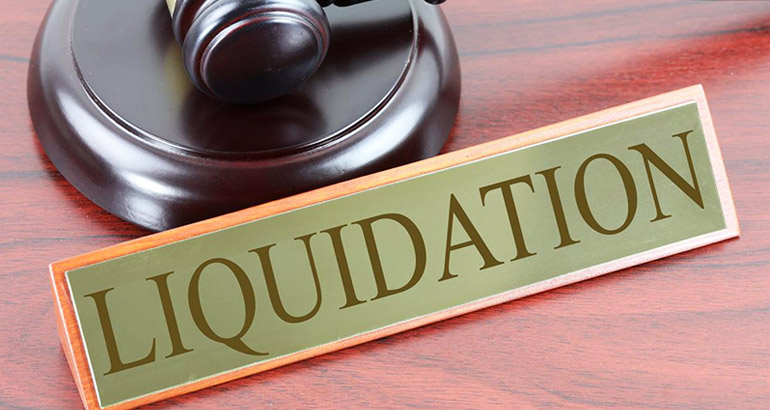The Ultimate Guide To Company Liquidation
The Ultimate Guide To Company Liquidation
Blog Article
How Company Liquidation can Save You Time, Stress, and Money.
Table of ContentsExcitement About Company LiquidationFacts About Company Liquidation UncoveredAbout Company LiquidationHow Company Liquidation can Save You Time, Stress, and Money.Some Of Company Liquidation
A liquidator is especially assigned to look after the ending up of a firm's events in order for it to be folded commonly when the firm is going insolvent. The liquidator is a neutral 3rd event that manages the sale of business assets in order to pay off any arrearages.Their duty includes, but is not limited to: Neutral Movie director: A liquidator is charged with serving as an unbiased third event to manage the entire company liquidation procedure. Produce Statement of Matters: Liquidators have to develop an extensive declaration of events document. This document is dispersed to lenders, detailing the existing monetary status of business at the time of its liquidation.
After the liquidation of a business, its presence is gotten rid of from Firms Home and it stops to be a lawful entity. If directors browsed the process uncreative, there would certainly be no penalties or individual liability for firm financial debts expected. Currently, with a clean slate, supervisors can check out brand-new service opportunities, though professional consultation is suggested.
Company Liquidation for Dummies
As an example, if more than 90% of all business investors concur, liquidation can take place on short notification within 7 days, the minimal statutory notice for lenders. Normally, the larger the liquidation and the even more properties and resources the business has, the longer the process will certainly take. 'Do I need to pay to liquidate my firm?', the solution will certainly rely on whether your organization has any assets remaining when selling off.

We understand that no two companies coincide, which is why we will certainly put in the time to be familiar with your service so we you can try this out can suggest the finest program of action for you. We only function in your ideal passions, so you can be absolutely positive in the service we provide.
Unknown Facts About Company Liquidation
In the UK, there is an established process to shutting down or reorganizing a limited firm, whether it is solvent or financially troubled. This procedure is understood as liquidation and can only be managed by a certified bankruptcy specialist (IP) based on the Insolvency Act 1986. There are 4 main kinds find out here of company liquidation procedure: Creditors' Volunteer Liquidation (CVL); Compulsory liquidation; Management; and Participants' Voluntary Liquidation (MVL).

In these circumstances, it is essential that the firm stops trading; if business proceeds to trade, the directors can be held directly liable and it can lead to the insolvency expert reporting wrongful trading, called misfeasance, which may bring about legal activity. The directors assign a bankruptcy practitioner and once this has actually been agreed and confirmed, there check this site out is a conference with the investors.
The supervisors are no much longer entailed in what takes place, consisting of the sale of the firm's assets. If the directors desire any of the assets, they can inform the IP.
Rumored Buzz on Company Liquidation
The major distinction is that the company's creditors put on the court for an ending up order which compels the financially troubled company into a liquidation procedure. Financial institutions take this action as a last resort due to the fact that they haven't received settlement through various other types of negotiation. The court appoints a bankruptcy professional, likewise known as a main receiver, to conduct the required business liquidation process.
This kind of company liquidation is not volunteer and directors' conduct is reported to the UK's Assistant of State once the liquidation process has actually been completed. Any supervisor that fails to comply with the IP or has been included in supervisor misconduct, or a deceitful act, may result in major effects.
It is made use of as a way to safeguard the business from any type of lawful activity by its financial institutions. The directors of the company agree to make regular repayments to settle their financial obligations over a duration of time.
Company Liquidation - An Overview
This offers the company with time to develop a strategy going onward to save the business and prevent liquidation. At this point, supervisors hand control of the business over to the designated administrator. If a firm is solvent yet the directors and shareholders wish to shut business, a Members Volunteer Liquidation is the right alternative.
The business liquidation process is taken care of by a liquidator selected by the directors and investors of the business and they should sign an affirmation that there are no creditors continuing to be. The liquidation process for an MVL is similar to that of a CVL because assets are realised however the proceeds are dispersed to the directors and the investors of the business after the liquidator's fees have been paid.
Report this page